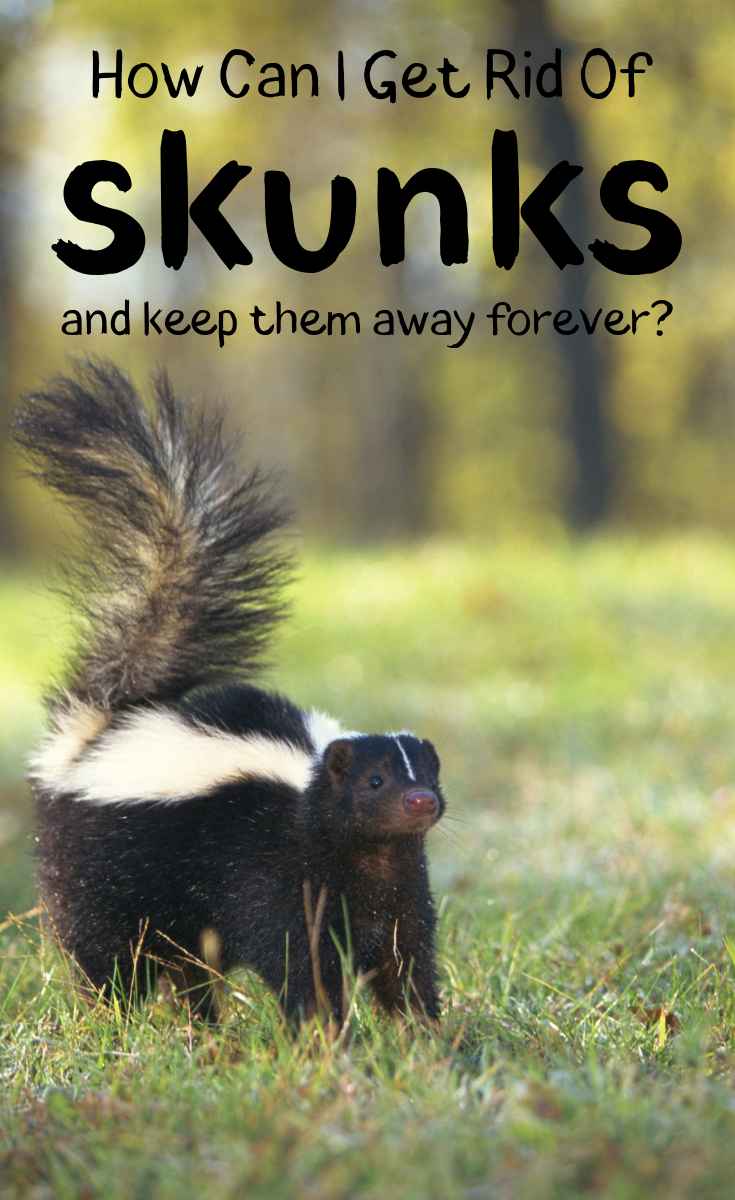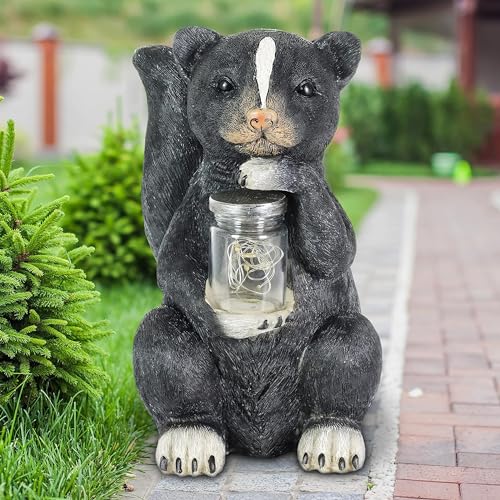Skunks are nocturnal and shy animals which aren’t often seen, but they certainly can be smelled! They are harmless creatures but it’s not advisable to stay too close to them, because they can “aromatize” you with a dose of their noxious spray. In some cases, when skunks feel threatened, they can bite and infect you with rabies if they are caring the disease.
However, having a skunk around your house is not indicated and must be treated as a pest! They can tear up trash bags and topple garbage cans in their search for food, which can attract insects to your home.
To prevent their unannounced visit into the garden, you should make your home inhospitable by removing all food sources, hiding places and apply some effective skunk repellent.
Steps to follow for getting rid of skunks in the garden:
- Spray a mixture of castor oil and dish-washing detergent diluted in water. Skunks find the smell offensive. Spray the area at night when the skunk is away foraging.
- Probably the best skunk repellent is a light. Skunks are nocturnal and their eyes are very light sensitive. A bright light or a motion sensor flood light will scare skunks away.
- Most animals, including skunks, dislike the smell of citrus fruits. Place orange or lemon peels around the yard as a natural skunk repellent.
- Predator urine (dogs, coyotes) can be used to repel a skunk. These are commercially sold in garden centers.
- Many people say that placing ammonia-soaked rags around the yard, however, these need to be replaced often.
- If the skunks are in a smaller garden patch, put bars of strong–smelling soap or a room deodorizer near your garden. Ironically, skunks hate strong scents.
- If nothing works, there are humane ways for professionals to trap raccoons and skunks and transport them elsewhere. Often, skunk removal by trapping is the only answer, and there just isn’t a lot you can do if it is a skunk. However, be aware that many species of wildlife do not survive when placed in a new territory.












0 Comments